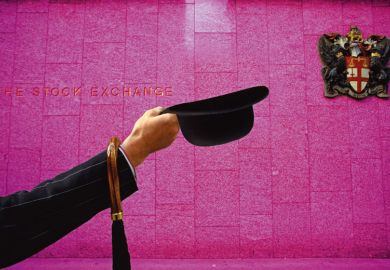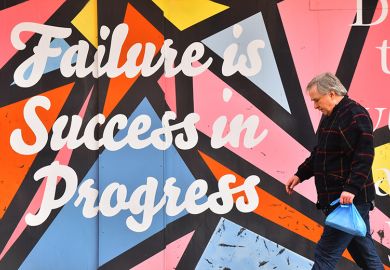On 1 September, US president Joe Biden made headlines proclaiming that the rampant populism in US politics has grown so out of control that it is endangering the nation’s democratic vision. He boldly asserted that “Donald Trump and MAGA Republicans represent an extremism that threatens the very foundations of our republic”.
Biden was referring to how growing economic inequality and mass disenfranchisement of ordinary citizens has paved the way for what he calls “semi-fascism”. And the US is not unique in facing this threat, with populist governments having been established across the world, in Europe, Asia, South America and beyond.
Today’s populism is a legacy of the global financial crisis of 2008. As the economy collapsed under the excesses of careless corporate greed, the social and economic divisions between the wealthy elite and ordinary citizens were pushed to breaking point. The populist response was an unholy cocktail of authoritarianism, nationalism and bigotry.
As populism took hold in politics, businesses responded with a new mantra of “stakeholder capitalism”, claiming a central role in addressing the critical social and political issues that matter to their customers, employees and society. Business schools started to change, too. Societal impact, social licence to operate, sustainability and corporate purpose transferred from the boardroom to the ivory tower.
The Association to Advance Collegiate Schools of Business (AACSB) took the lead in 2020 when it instituted “engagement and societal impact” as an essential standard for business school accreditation. This new standard’s formalisation builds on a long-standing commitment of the AACSB to the United Nations’ Principles for Responsible Management Education (PRME) and to the Responsible Research in Business and Management network (RRBM).
The challenges are clear and united. Business schools need to “transform the world through business” (PRME) and ensure that their work improves the “lives of people in our societies” (RRBM) in service of a “higher calling…to make a difference in the world through positive societal impact” (AACSB).
While the shift to stakeholder capitalism is in many ways welcome, it has done little to address the fundamental threats to democracy that were exposed by the global financial crisis. These are the threats that mark the limits of the current social impact agenda and are the ones that need to be addressed if business schools are to contribute to the preservation, or even the flourishing, of the democratic system.
The types of initiatives that business schools undertake in the name of “societal impact” largely follow the same playbook as businesses themselves. The new political focus of business is largely on progressive social and environmental issues. Sorely missing from this agenda is a consideration of what has created the conditions for the populist attack on democracy: namely, the vast political and economic inequalities, across class, gender, racial and geopolitical lines, that have been exacerbated by the past 40 years of global neoliberal reform. Corporate tax avoidance, obscene CEO and executive pay, minimum wage levels, progressive income taxation, universal basic income and the fundamental right for workers to unionise – these are all core economic issues that, nevertheless, are absent from the corporate social impact agenda.
They are largely missing from business schools’ agendas, too. If we want to be at the forefront of lasting systemic change, moving towards social and economic well-being for all, we need to do much better. The fundamental problem is that business schools too easily see themselves as institutions beholden to the needs and preferences of business. Missing is the significant contribution that business schools can make if we see ourselves, instead, as primarily in the business of supporting the social and economic well-being of all citizens.
The real challenge for business schools is to combat the socio-economic causes of the political populism that threatens democracy. For that, we need a more fundamental change to how business activity continues to perpetuate the inequalities that fertilise the soil in which populism has grown.
“Democracy has to be born anew every generation, and education is its midwife,” said philosopher John Dewey. For decades, business schools have failed to be midwives in this process, focusing instead on teaching and research on the same forms of market fundamentalism and shareholder primacy models that led to populism’s appeal.
Our challenge, indeed our civic responsibility, is to reinvigorate the democratic imagination and democratic practice through our curriculum, research and engagement. Beyond social impact lies the future of our whole way of life.
Carl Rhodes is dean of the UTS Business School at the University of Technology Sydney.
Register to continue
Why register?
- Registration is free and only takes a moment
- Once registered, you can read 3 articles a month
- Sign up for our newsletter
Subscribe
Or subscribe for unlimited access to:
- Unlimited access to news, views, insights & reviews
- Digital editions
- Digital access to THE’s university and college rankings analysis
Already registered or a current subscriber?








